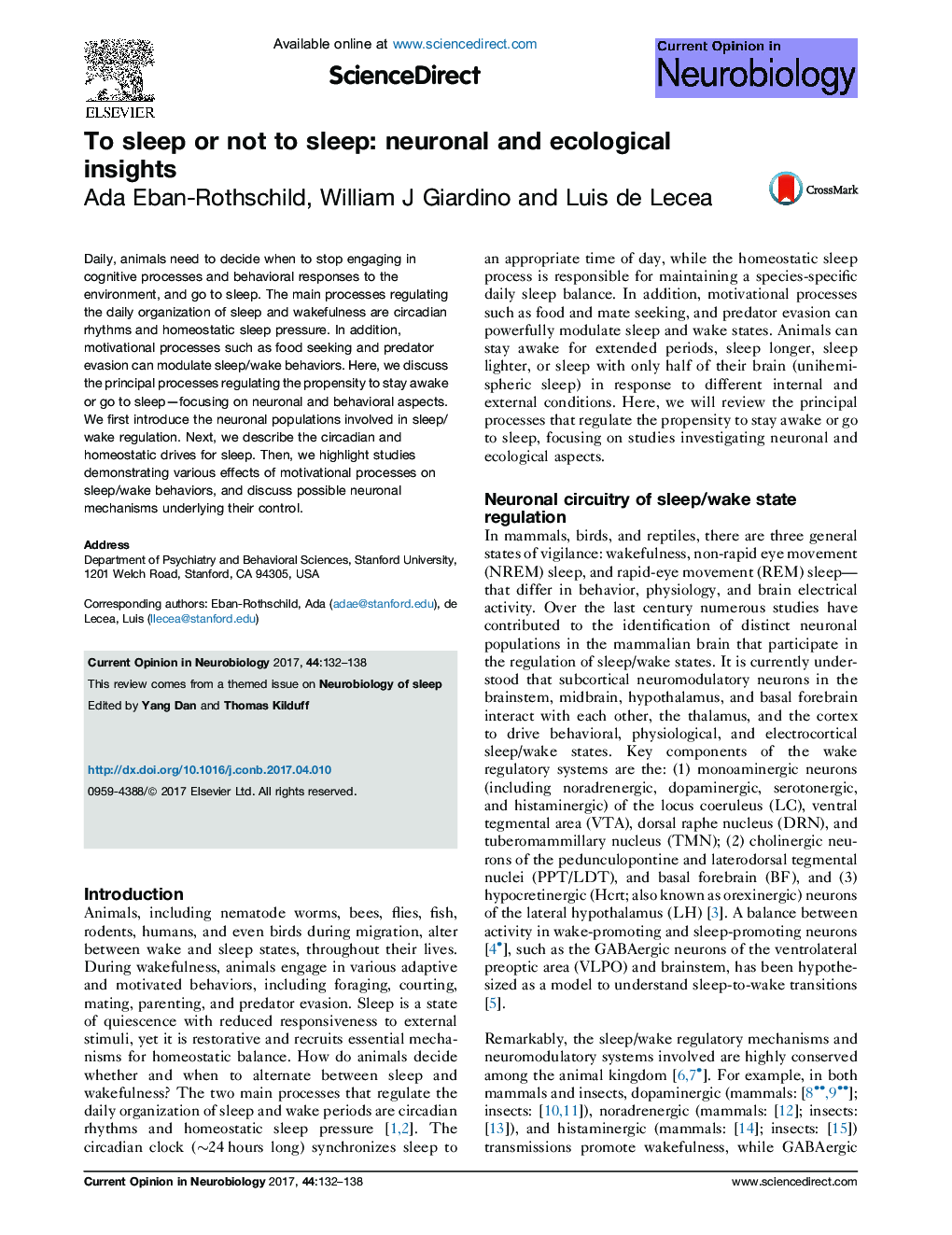| Article ID | Journal | Published Year | Pages | File Type |
|---|---|---|---|---|
| 5737016 | Current Opinion in Neurobiology | 2017 | 7 Pages |
Abstract
Daily, animals need to decide when to stop engaging in cognitive processes and behavioral responses to the environment, and go to sleep. The main processes regulating the daily organization of sleep and wakefulness are circadian rhythms and homeostatic sleep pressure. In addition, motivational processes such as food seeking and predator evasion can modulate sleep/wake behaviors. Here, we discuss the principal processes regulating the propensity to stay awake or go to sleep-focusing on neuronal and behavioral aspects. We first introduce the neuronal populations involved in sleep/wake regulation. Next, we describe the circadian and homeostatic drives for sleep. Then, we highlight studies demonstrating various effects of motivational processes on sleep/wake behaviors, and discuss possible neuronal mechanisms underlying their control.
Related Topics
Life Sciences
Neuroscience
Neuroscience (General)
Authors
Ada Eban-Rothschild, William J Giardino, Luis de Lecea,
